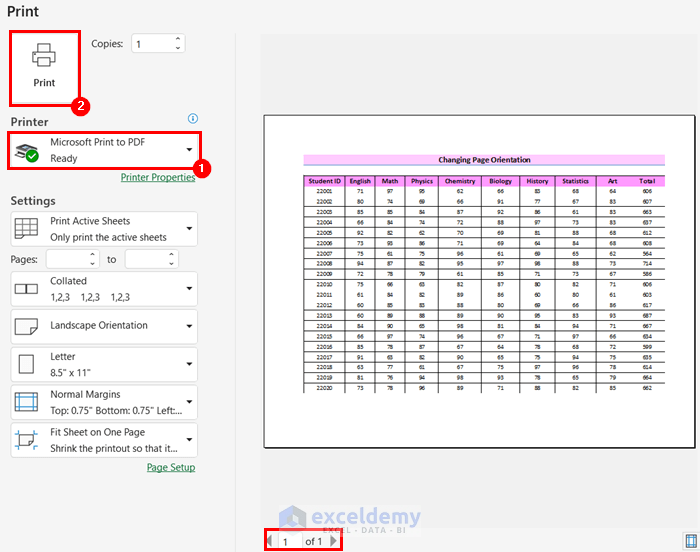How Long Should You Keep Important Paperwork?

In the age of digitalization, the question of how long one should retain physical and electronic records has never been more critical. Whether you're organizing your home office, managing a small business, or are an individual keen on keeping your affairs in order, understanding document retention policies can save you from future headaches and potential legal troubles. This comprehensive guide will help you navigate the often confusing waters of document retention, providing you with insight on what to keep, for how long, and why.
Understanding the Importance of Document Retention


Before we delve into the specifics of how long different documents should be kept, it’s crucial to understand why retention policies matter:
- Legal Requirements: Certain documents need to be kept for a specified period due to legal requirements, such as tax returns or employee records.
- Tax Purposes: Keeping financial records for tax purposes can help with audits or reclaiming overpaid taxes.
- Business Operations: Companies must keep records to show proof of transactions, warranties, or service agreements.
- Personal Affairs: Knowing which documents to keep ensures you can manage personal affairs efficiently, like estate planning or home improvement warranties.
How Long to Keep Personal Documents

When it comes to personal documents, the following list provides a general guideline:
| Document Type | Retention Period |
|---|---|
| Birth and Death Certificates | Forever |
| Marriage/Divorce Records | Forever |
| Property Deeds | Forever |
| Home Improvement Receipts | 7 years after completion of improvement |
| Investment Records (stocks, bonds) | Forever |
| Medical Records | As long as needed for personal reference |
| Insurance Policies | Until renewed or expired |
| Tax Returns | 7 years |
| Pay Stubs | 1 year (after filing tax returns) |
| Utility Bills | 1 year (or until you’ve moved out of the property) |

Please note, these are general recommendations; your situation might require you to keep documents for longer periods. For instance, if you have a home mortgage, keeping records of your mortgage interest might be beneficial for tax purposes indefinitely.
📝 Note: Always check local laws or regulations for any specific document retention requirements.
Business Records Retention

For businesses, document retention policies can be more complex due to various legal and operational reasons:
- Employee Records: Keep for at least the duration of employment plus 3 years after termination.
- Bank Statements, Receipts, Deposits: 7 years.
- Tax Records: 7 years (U.S. businesses).
- Purchase Orders and Sales Invoices: 7 years.
- Contracts and Agreements: Keep for the duration of the agreement plus 7 years or the statute of limitations, whichever is longer.
- Minutes and Corporate Books: Forever.
These guidelines help businesses stay compliant, manage their affairs smoothly, and be prepared for potential audits or legal actions.
Electronic Records

With the shift towards paperless offices and the convenience of digital storage, electronic records retention has its own set of considerations:
- Data Backup: Regular backups of digital documents are essential to prevent data loss.
- Digital Security: Ensuring the security of these documents with encryption and access controls.
- Retention Period: Digital documents should be retained following the same guidelines as their paper counterparts.
- Legal Validity: Digital signatures or scanned documents must be legally recognized if needed for official purposes.
There’s often a misconception that electronic records can be deleted once physical copies are shredded. This isn’t true; the same retention rules apply to digital copies.
Final Thoughts

Document retention policies can seem overwhelming, but with the right guidance, they become manageable. Remember that these are general guidelines, and your specific situation might require additional research or consultation with professionals like accountants or lawyers, especially in cases involving legal matters or unique business scenarios.
By understanding the why and how of document retention, you can ensure that you have the necessary information at hand when you need it, while also staying compliant with legal standards. Organizing your records helps streamline your life or business operations, providing a clear path through the maze of paperwork that often comes with modern living.
Moreover, in an era where identity theft is a growing concern, keeping your documents safe and knowing when to dispose of them securely can offer significant peace of mind.
To sum up, retention policies are there to protect your interests, maintain your financial health, and keep you on the right side of the law. Whether you're running a business, managing personal affairs, or somewhere in between, having a document retention strategy is key to well-organized, stress-free living.
Can I shred documents after scanning them?

+
Yes, after ensuring the electronic version is securely backed up, you can shred documents, especially if they are no longer legally required to be kept in physical form. However, verify local laws to ensure you’re compliant.
What should I do if I’m unsure about the retention period?

+
When in doubt, err on the side of caution and keep documents longer. Consulting with a legal or tax professional can provide specific guidance.
Do I need to keep records if I’m not a business owner?

+
Absolutely. Personal records like tax returns, medical bills, and insurance policies are just as important for individuals as they are for businesses.
How should I organize my records?

+
Create a filing system, either physically or digitally, categorize documents by type, date, and relevance, and regularly review and update your records.
What are the benefits of electronic document storage?

+
Electronic storage saves space, is easily searchable, reduces paper clutter, and can be backed up off-site for disaster recovery.



